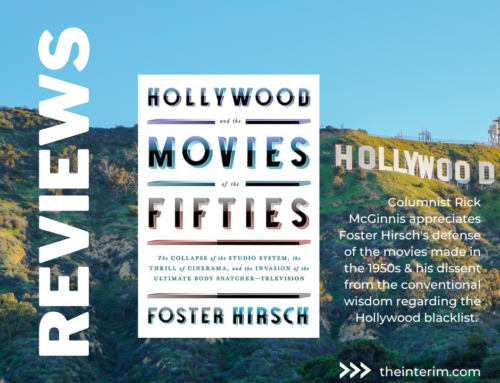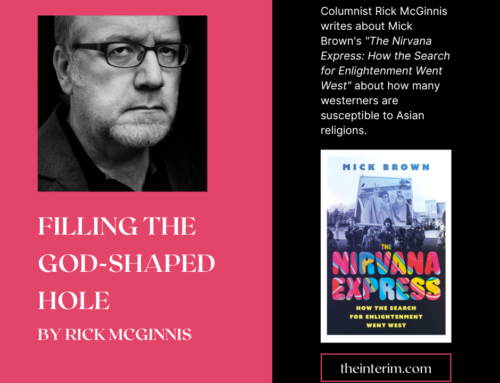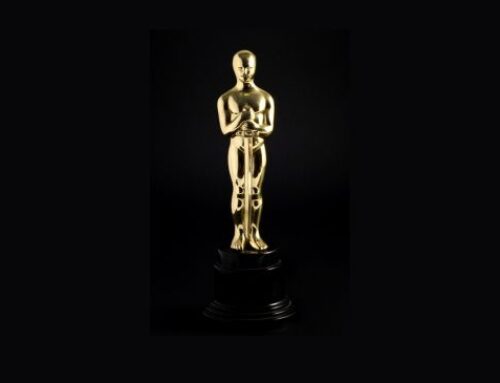Critics are used to playing Cassandra – lamenting the fallen state of the world and prophesying its woeful future, all while giving you the latest news on gross-out comedies, reality television or the state of young adult fiction. As such, you can be forgiven if the latest prediction of cultural calamity strikes you as more than one too many, inspiring more yawning than hand-wringing.
That’s my usual reaction, but something about “The Year the Culture Broke,” an article by movie critic Armond White that ran in an August issue of the National Review, made me stop and consider if he had a point. Especially since, on reflection, I can’t deny that while taking on the role of cultural critic for the run of the decade White talks about in his piece, I have never felt more disconnected from that culture, not even during a rather stridently rebellious youth.
White makes his point with firmness, and no small amount of hyperbole. “Nothing is valued past opening weekend,” he states in his opening paragraph, “and the cultural fragmentation that sorts moviegoers by age, political proclivities, race and gender cannot be mended by taste or education. All entertainment now reflects our political division.”
White’s thesis is simple: Popular culture was already teetering on the brink in the wake of 9/11, but 2004 was the year when the divisions became terminal, with the release of two films – Mel Gibson’s Passion of the Christ and Michael Moore’s Fahrenheit 9/11. The media staked out their position clearly, and any discussion of either film was predicated on a simple formula, according to White: “Passion became a red-state movie, and Fahrenheit became a blue-state movie.”
White is a contentious creature, even as a self-defined cultural contrarian who writes about movies for a conservative journal like the National Review. His reputation is partially built on a list he publishes annually, where he states which obscure or misunderstood films of the past year are better than some critical favorite or box office hit. (Last year, for instance, he esteemed Bad Grandpa, the gross-out candid camera film from the team behind Jackass more than Nebraska, a critically-lauded bleak comedy. I happen to agree.)
His infamy was amplified last year, however, when he was ejected from the New York Film Critics Circle, where he’d been chairman for three years, after heckling Steve McQueen, director of the critic’s favorite 12 Years a Slave, at their awards dinner. That White is himself black only made the outrage of his many enemies more ferocious. His contrarian bona fides are enhanced even further by the fact that White is homosexual, and sometimes reviews the same films for both National Review, a conservative magazine, and Out, a gay magazine.
Helpfully, White published a supplement to accompany his National Review polemic, listing the 20 films he thinks “effectively destroyed art, social unity and spiritual confidence … a corrupt, carelessly politicized canon” released in the decade since the culture broke. They include films that I disliked as much if not more than he did (Good Night and Good Luck, Inglourious Basterds) with films I wouldn’t single out as nearly that sinister (United 93, The Social Network) and some I actually enjoyed (Wall-E, Knocked Up).
White is by his own definitions an aesthete, as much if not more concerned with a film’s artistic ambitions than its political ones, which makes it easy to dismiss his jeremiad by shrugging that “it’s just a matter of taste.” But he makes a very serious point about much of the art we’ve seen offered in the cultural marketplace over the past decade by pointing out that not just directors but actors, writers and even producers are open about their intentions to make pamphleteering films – propaganda for their side, undisguised and forthright.
“Here is where the culture broke – ” he writes, “by breaking tenets of decency.” Christian religion, once a subject to be treated with respect if not actual reverence in mainstream films, was now meant to be mocked when it wasn’t brazenly misinterpreted. No wonder then that churchgoers have felt less part of the mainstream than any previous generation, although that’s leading to a point where being a principled believer is becoming the position of an embattled minority. In the context of secular society, being religious and young is the height of rebellion and nonconformity.
As the saying goes, something that can’t continue, won’t, and diminishing box office returns are proving this. Forays at pushing the envelope out further like Obvious Child, the “abortion comedy” made with the enthusiastic cooperation of Planned Parenthood, don’t make back their budgets at the box office. But failure, like success, takes time, and at this point I can’t help but default to the critic’s Eeyore-like mope, and wonder how many more bad films will get made and how many more worldviews tainted, even if just temporarily, before decency is mended.





